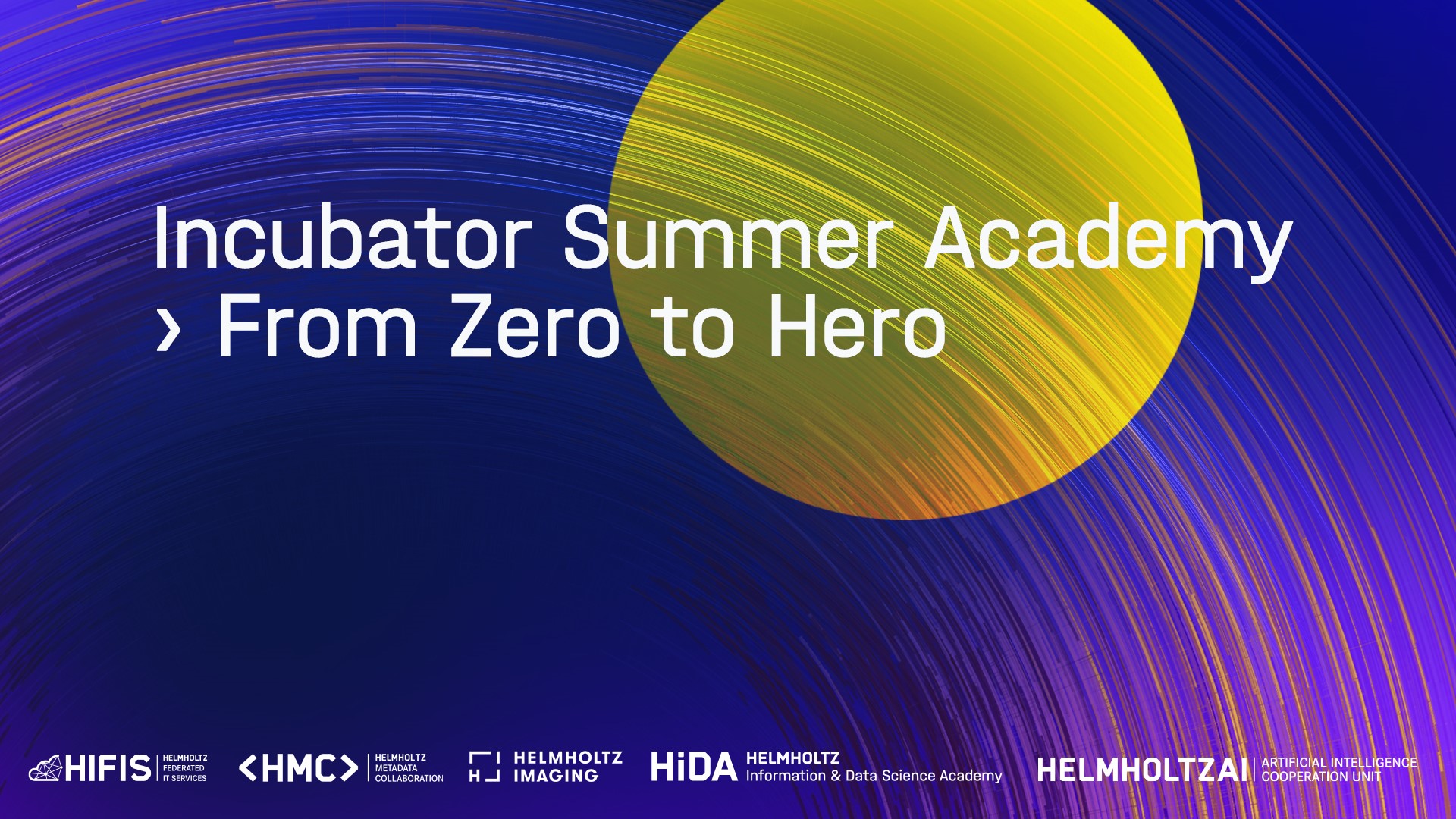- Indico style
- Indico style - inline minutes
- Indico style - numbered
- Indico style - numbered + minutes
- Indico Weeks View
Incubator Summer Academy - From Zero to Hero
→
Europe/Berlin
,
Description

The five Helmholtz incubator platforms Helmholtz AI, Helmholtz Imaging, HIFIS, HIDA and HMC have teamed up to create an exciting program:
- Data science workshops from beginner to expert level,
- a data challenge,
- lectures,
- plenty of networking opportunities
From fundamental workshops like „Introduction to Python“ to advanced courses on „Machine Learning for Instance Segmentation and Tracking“, participants will be able to pick and choose offers that best suit their experience levels and interests. In our data challenge, you and your teammates can put your (newly acquired) knowledge to the test. You’ll get the chance to network with colleagues from all Helmholtz centers and learn more about career opportunities and data science-related exchange programs. Finally, don’t miss our lectures by data science experts!
The Incubator Summer Academy - From Zero to Hero is open to all doctoral and postdoctoral researchers in the Helmholtz Association. Additionally, a small number of seats in our workshops are reserved for Master students, doctoral and postdoctoral students from other research institutions and universities.
How to register
The registration deadline is August 29, 2022. Entering in the data challenge will be possible until September 22, 2022.
- Log in to indico first at https://events.hifis.net
- Have a look at the program below. Choose the workshop(s) you would like to attend keeping in mind that some workshops require certain previous experience/knowledge and you should not pick two courses that overlap timewise.
- If you want to register for a workshop, click on the link "→ Register here ←" in the workshop description. Alternatively, you can click on the respective "Apply for registration" or "Register" button in the list of registration forms at the bottom of this general information page.
- You will be directed to the registration form for that workshop. Fill it in and click on "Apply".
- You will receive a registration notice via e-mail. Please note that this is not yet a confirmation.
- Please make your own calendar entries so that you do not miss the workshops you registered for.
- If you are selected as a participant for the workshop, you will be notified about a week prior to the Incubator Summer Academy.
For certain events, you will be directed to external registration pages.
Please note that all workshops will take place online and attendance is free of charge.
Gather.town
In our gather.town space you will be able to meet and mingle with other attendees of the Incubator Summer Academy. You'll be able to find out more about our platforms and career opportunities at Helmholtz and beyond. Have a virtual drink at our bar during one of the daily dedicated time slots for networking and get to know like-minded people from other Helmholtz centers!
For the teams competing in our data challenge, there will be rooms in our gather.town space where you can meet and discuss your progress.
The link to our space will be published at a later point.
Questions?
Write us at hida-courses@helmholtz.de
